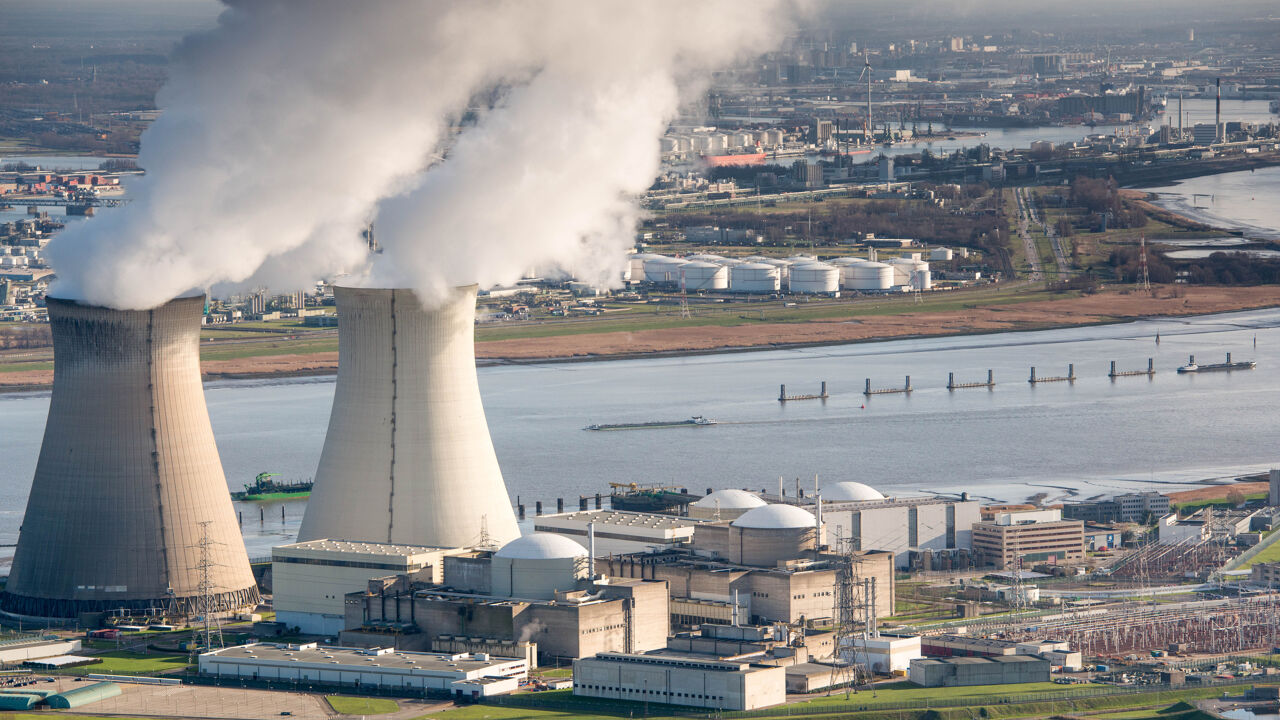 After recently shutting down one of Belgium's six remaining nuclear reactors the federal government is now considering extending the operation of the three oldest reactors. These include unit 2 of the Tihange NPP, which was shut down in January, and units 1&2 of the Doel NPP which are to be disconnected from the grid by 2025 in line with the 2003 nuclear phase-out law. Tihange 2 was the second reactor to close under the phase-out law - Doel 3 closed in September 2022. This left five reactors still in operation – Doel 1,2&4 and Tihange 1&3. In January, French power utility Engie agreed to extend the operating lives of Doel 4 and Tihange 3, Belgium’s newest reactors - by 10 years from 2026 in face of the current energy crisis.
After recently shutting down one of Belgium's six remaining nuclear reactors the federal government is now considering extending the operation of the three oldest reactors. These include unit 2 of the Tihange NPP, which was shut down in January, and units 1&2 of the Doel NPP which are to be disconnected from the grid by 2025 in line with the 2003 nuclear phase-out law. Tihange 2 was the second reactor to close under the phase-out law - Doel 3 closed in September 2022. This left five reactors still in operation – Doel 1,2&4 and Tihange 1&3. In January, French power utility Engie agreed to extend the operating lives of Doel 4 and Tihange 3, Belgium’s newest reactors - by 10 years from 2026 in face of the current energy crisis.
The Belgian government has now asked Engie to investigate whether operation of Doel 1&2 and Tihange 1 can be extended until 2027. This was an unexpected policy shift, and even more unexpected was the support of the Greens including Energy Minister Tinne Van der Straeten of the Flemish Groen Party. Previously the Greens sought the immediate closure of all Belgium’s NPPs.
The rethink was prompted by a report from grid operator Elia. The report was leaked a few days after a demonstration by pro-nuclear activists protesting the closure of Tihange 2. The report cited a risk of electricity shortages for the winter of 2025-2026 and beyond. Although Elia had earlier concluded that the situation was under control, it now predicts that France could lack 900-1,200 MWe, which equates to 15% of its usual consumption.
The government had given assurances in January that extending the operation of Tihange 3 and Doel 4 until 2035 would avoid blackouts. This came after a very long negotiation with plant operator Engie-Electrabel, which had reservations. Both units will have to be closed for major refurbishment work before being restarted in late 2026.
Elia has proposed a plan to conserve nuclear fuel by making the reactors produce less electricity during the summer months. The government hopes this would enable their extended operation to ensure energy supply security through the winters of 2025-2026 and 2026-2027. "The war in Ukraine and the problems in the French nuclear energy sector have made us look at ways to create more certainty and reduce risks in the energy supply," energy ministry spokesman Jonas Dutordoir told Reuters.
The government has requested Engie carry out a safety assessment of the proposed "micro-extensions" of the three units and submit a report to the Federal Agency for Nuclear Control by mid-March. Prime Minister Alexander De Croo and Energy Minister Van der Straeten will lead negotiations with Electrabel. "We do not want to take any risks with security of supply," said Van der Straeten
"The problems with the French nuclear power plants create additional uncertainty in our country," she added. “Due to unexpected breakdowns and maintenance, reactors in France produced much less than usual in the past year and power production fell to its lowest level in more than three decades. "The government therefore does not want to take any risks and that is why we now want to build in additional securities."
Doel 1&2, both 445 MWe (net) pressurised water reactors (PWRs), began operating in 1974 and 1975. They are currently scheduled to shut down in February 2025 and December 2025. Tihange 1, a 962 MWe (net) PWR, began supply power in 1975, and is set to close in October 2025.
Image: Doel nuclear power plant (courtesy of VRT)



